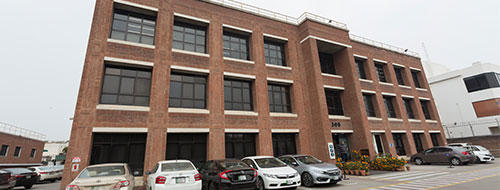Every year the World Water Day is celebrated on March 22nd and the theme this year, “Valuing Water” revolves around the environmental, social and cultural value people place on water. By virtue of being a good water steward, water is important for us at every stage of producing food i.e., from farm until it is consumed by the users. Following our sustainability journey, we ensure that our products are made in a way that we responsibly steward resources for the future generations which also stands true for the water.
And to do this, we not only make efforts onsite to reduce, reuse and recycle water but also engage with partners and communities outside our fence to ensure the sustainable use of this precious and shared resource. We do this under our Caring for Water (C4W) initiative which was launched in 2017. The initiative has three legs; Factories, Communities and Agriculture.
Going beyond our factory gates, we have stepped up our efforts towards saving water in the agriculture sector. We do this by promoting innovations which is a step towards a more sustainable future and our business and for the communities in which we operate.
Pakistan is an agrarian economy with more than one third of the national livelihood dependent on this while producing four major water intensive crops i.e., cotton, sugar, wheat and rice. It is estimated that more than 90% of Pakistan’s water resources are consumed by the agriculture sector out of which 50% stands wasted due to poor irrigation practices and outdated crop management techniques.
To help raise awareness on this front, Nestlé Pakistan partnered with the Agriculture Department, Government of Punjab to promote drip irrigation. Under this project 40% cost of the drip installation setup is paid by the Nestlé while 60% is paid by the government. This has enabled us to save a significant amount of water in comparison to flood irrigation.

Drip irrigation is a modern irrigation technique that involves dripping water onto the soil at low rates from small diameter plastic pipes fitted with outlets called emitters or drippers.

In comparison to flooding and sprinkler irrigation, which involves wetting the whole soil profile, drip irrigation applies water close to plants so that only part of the soil in which the roots grow, is wetted. It enables farmers to produce higher yields while saving water as well as fertilizer and input cost with improved crop yield.

We have also partnered with the Pakistan Agricultural Research Council (PARC) and University of Veterinary and Animal Sciences (UVAS) and established sites that pose best farm practices. These sites demonstrate optimal water usage with improved yield by showcasing drip irrigation and water sensors. Together with our partners, we have been able to save 428 million liters of water by installing drip irrigation setup on 152 acres in various parts of Punjab and Islamabad until 2020.

Similarly, we have worked towards developing smart soil moisture sensors that read the moist level of the crop and send regular data updates to a cloud. Farmers receive this information from the cloud and get to know which area to irrigate and how much. Likewise, we have also developed a software with the help of Center for Water Informatics and Technology (WIT), LUMS and Waziup (an Italy based organization) that helps the farmers and researchers to see the crop moisture level remotely on their computer screen and smart phones. These sensors are estimated to help reduce water usage by 12%. So far, we have installed water sensors on 25 farms with further scale up planned in 2021.
Naeem Hafeez Ch, a local farmer in Village Baghyana, Okara is implementing modern technologies on his farmland. He has drip irrigation and water sensors in place with the help of Nestlé Pakistan. “Since the installation of drip irrigation and sensors, I have been able to save up to 60 percent water followed by saving 30 percent reduction of fertilizer cost with a significant improvement in yield”, says Hafeez while talking about how adopting the modern technologies help him cut the cost and improve his crop productivity.
As a good water steward, we have established lighthouses across Punjab to educate the farmers about the benefits of using modern irrigation practices and help conserve water in the agriculture sector. These technologies not only ensure optimal water usage but also tend to be environment friendly and sustainable in the long run.
All our initiatives are aligned with the United Nations Development Goals, SDG 6 on Clean Water and Sanitation and SDG 17 on Partnerships for the Goals.
In Commitment with



